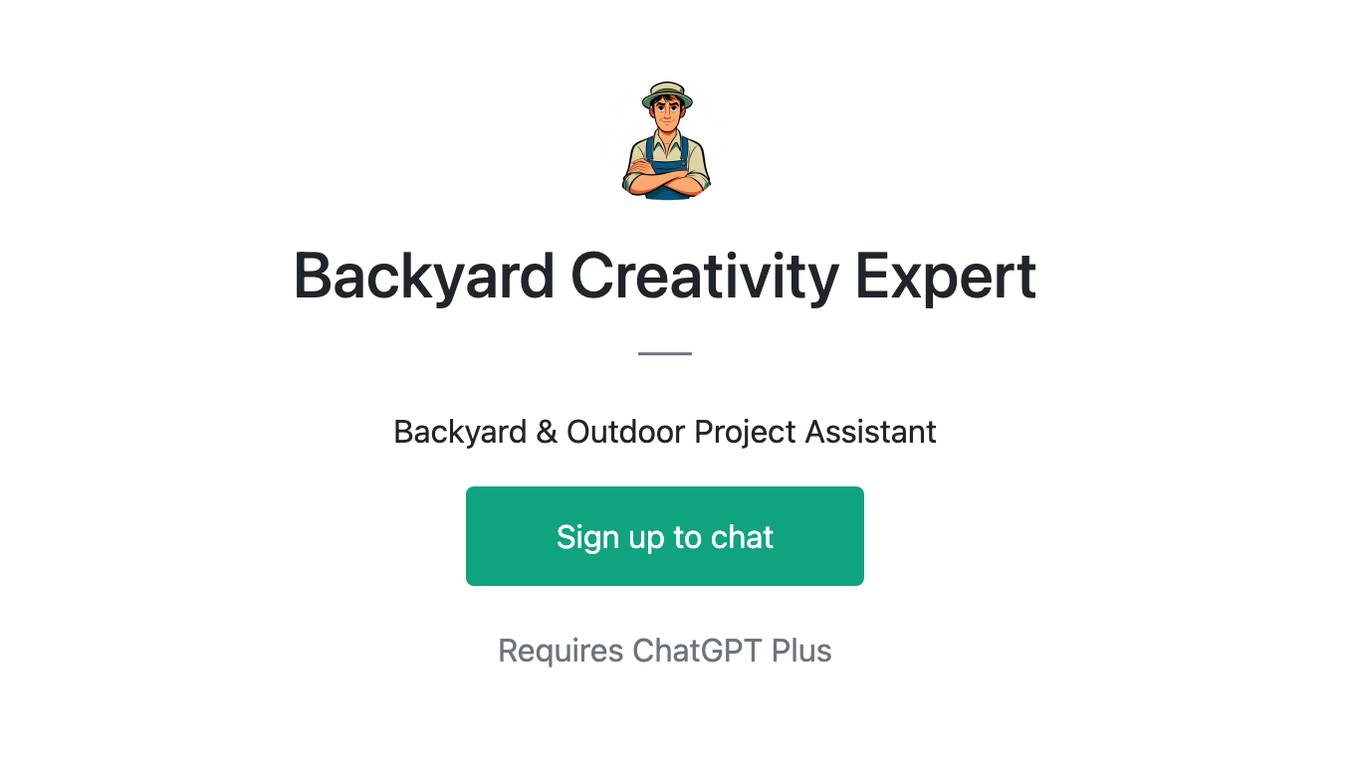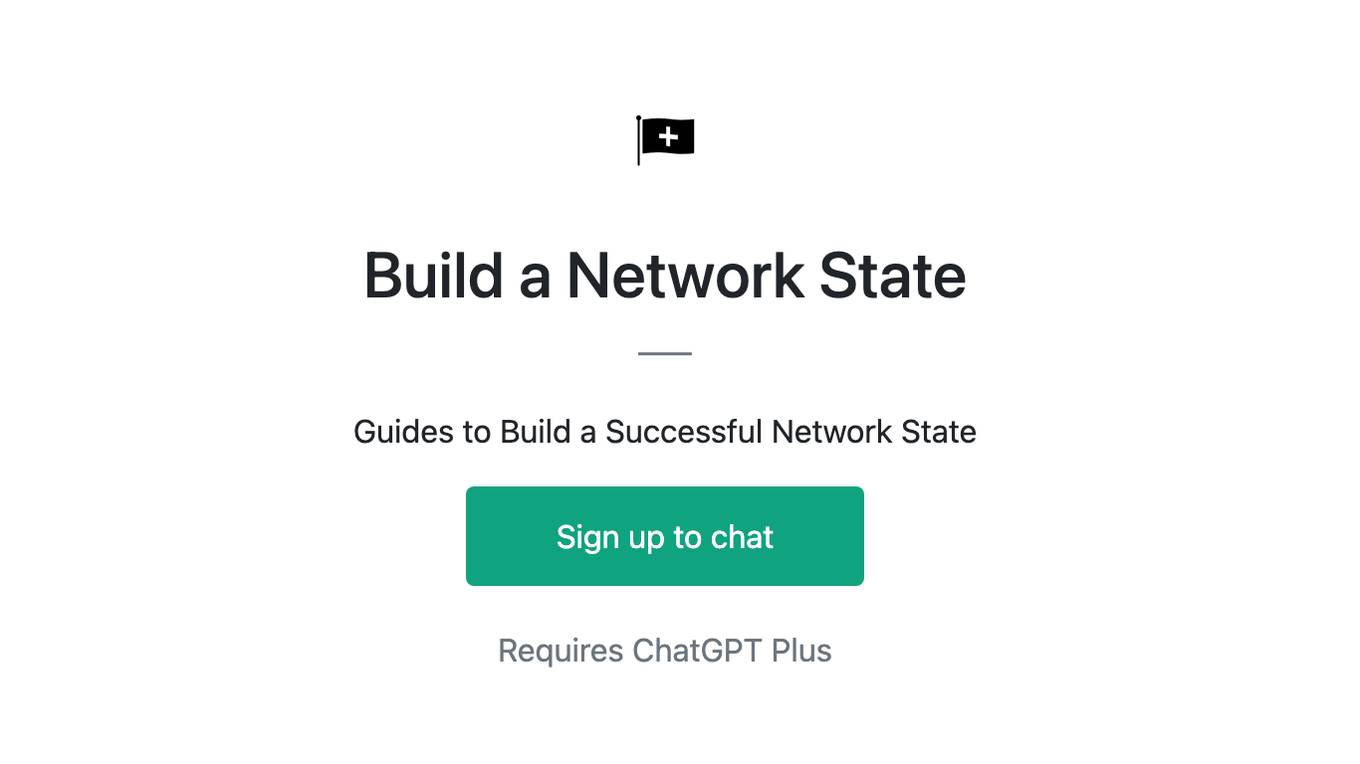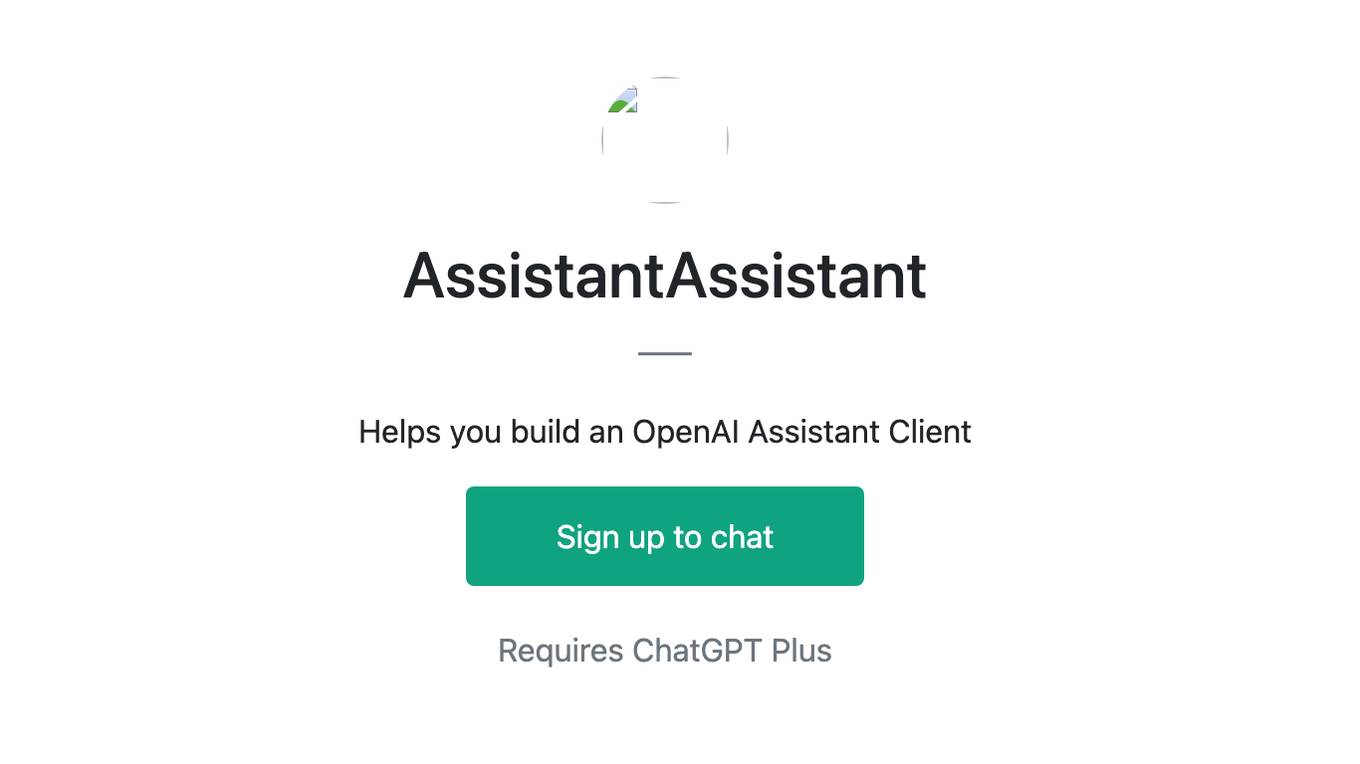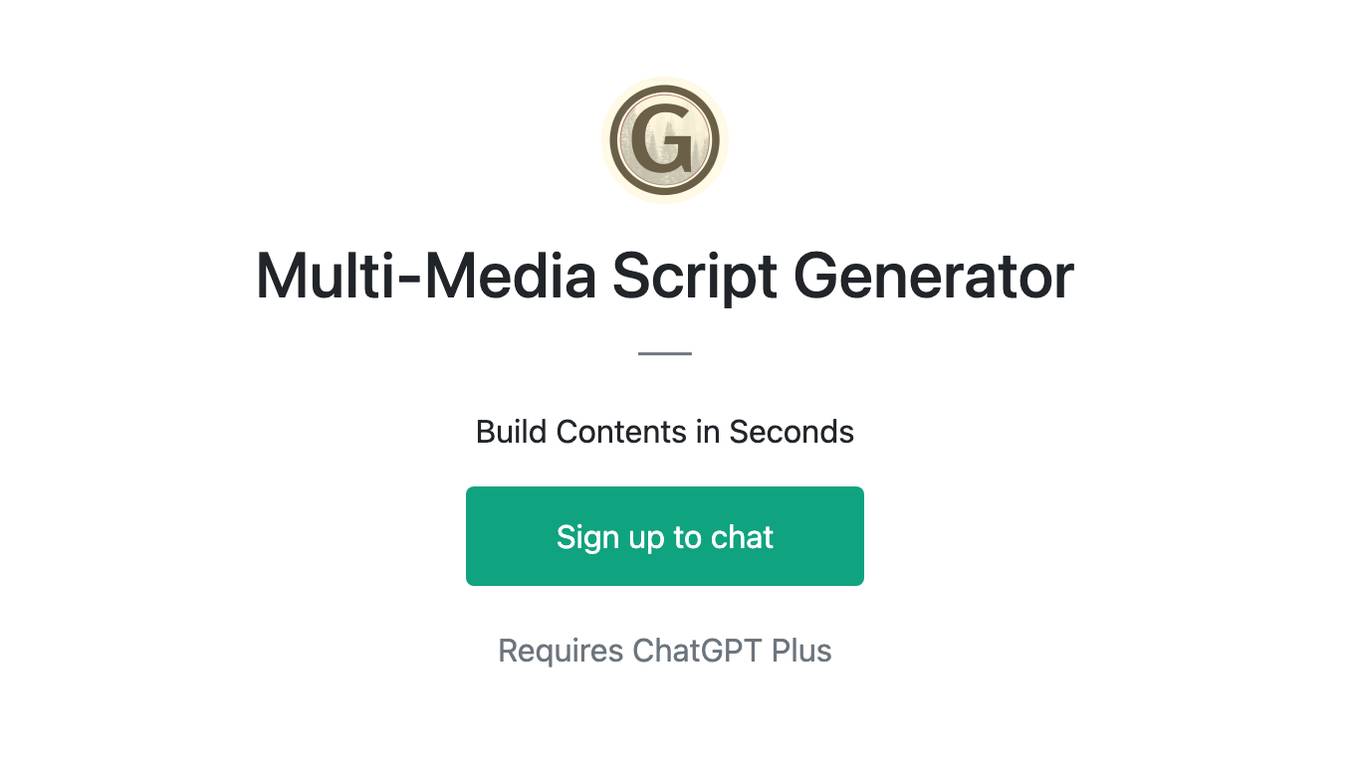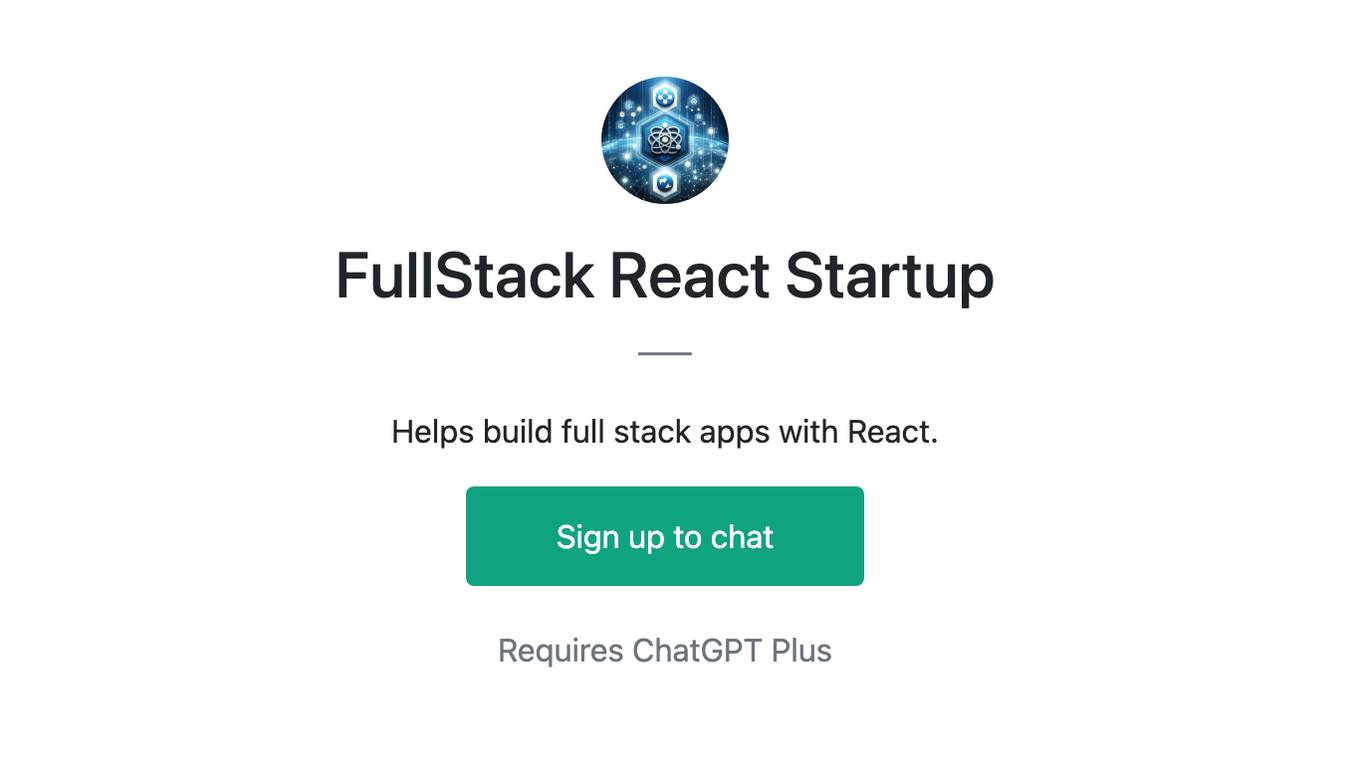Best AI tools for< Build Fire Pit >
20 - AI tool Sites
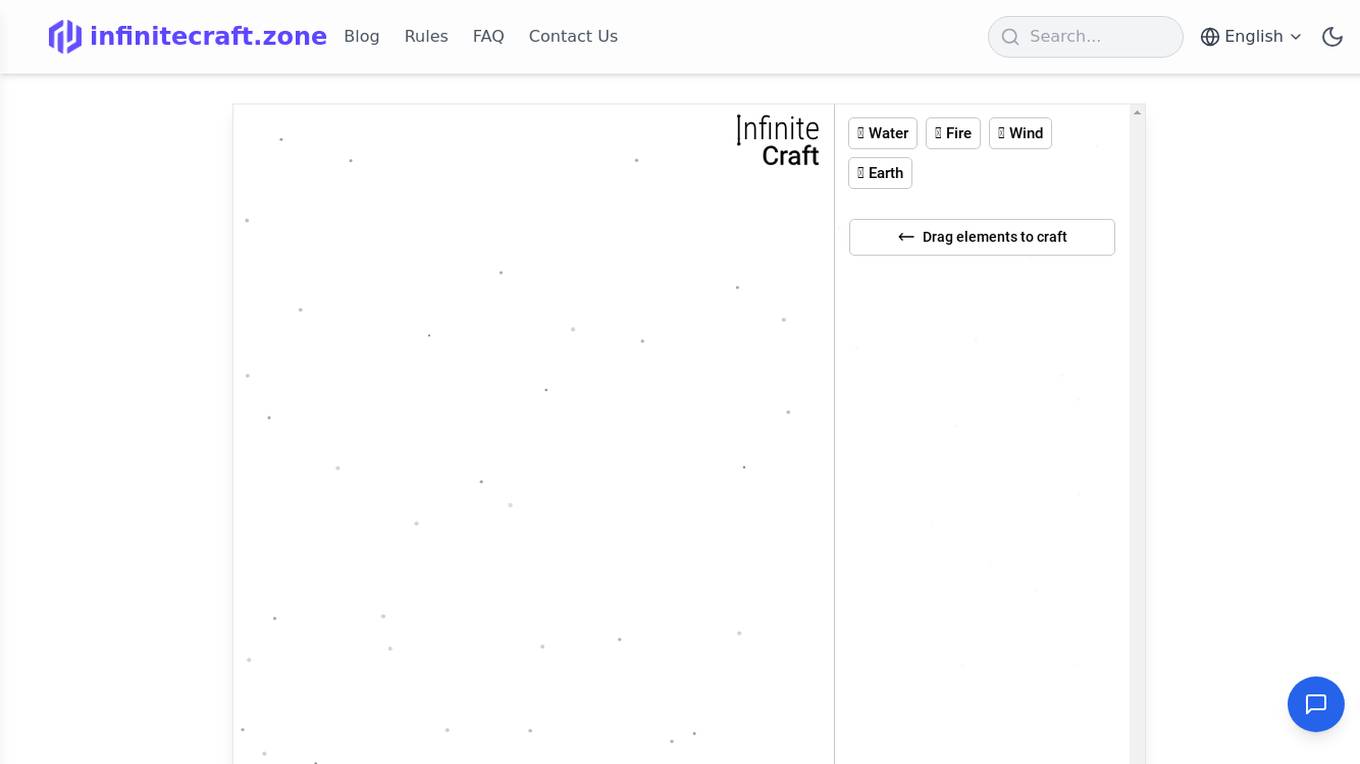
Infinite Craft
Infinite Craft is a browser-based sandbox game where players can create various things and creatures by combining different elements. The game utilizes artificial intelligence software to generate new items based on user prompts. Players start with basic elements like Water, Fire, Wind, and Earth, and can experiment with combinations to unlock new elements and expand their collection. There are no limits to creativity in Infinite Craft, allowing players to continuously explore and create without restrictions.
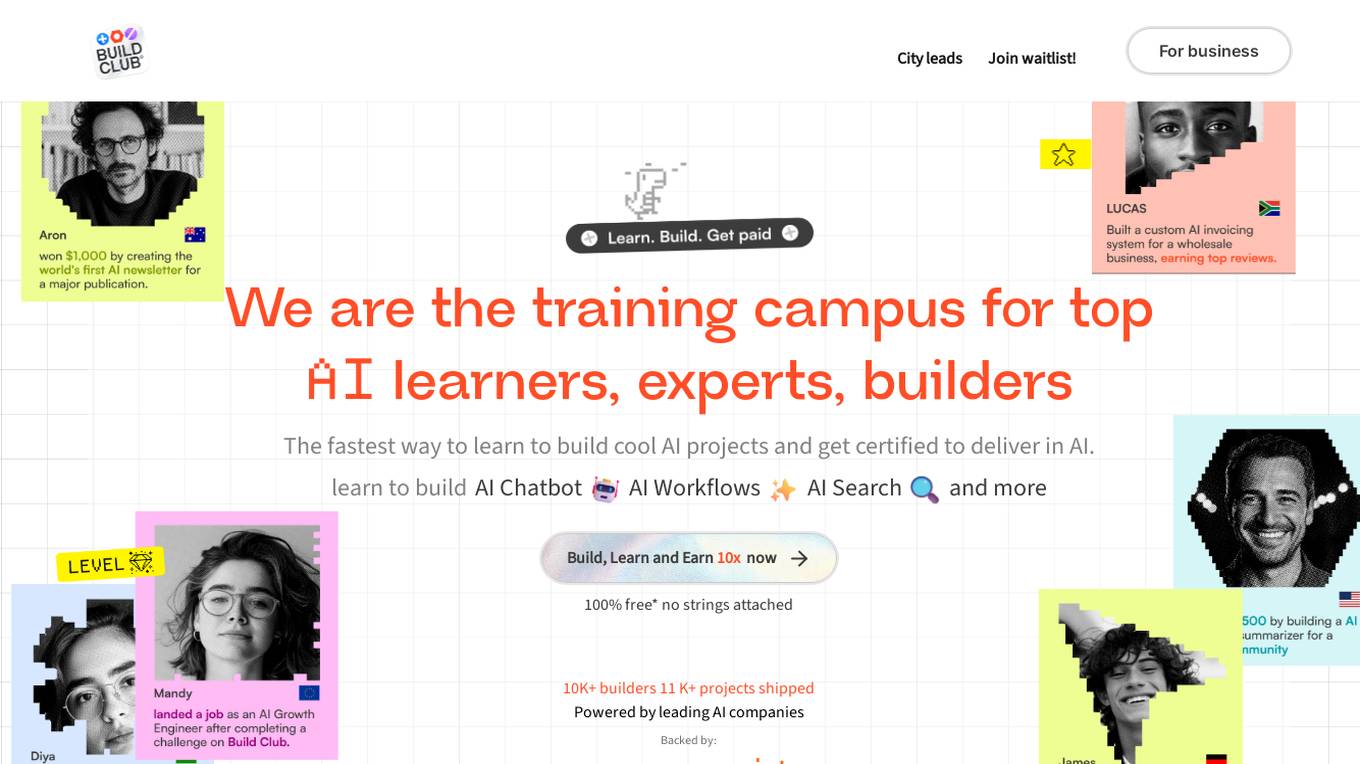
Build Club
Build Club is a leading training campus for AI learners, experts, and builders. It offers a platform where individuals can upskill into AI careers, get certified by top AI companies, learn the latest AI tools, and earn money by solving real problems. The community at Build Club consists of AI learners, engineers, consultants, and founders who collaborate on cutting-edge AI projects. The platform provides challenges, support, and resources to help individuals build AI projects and advance their skills in the field.

Unified DevOps platform to build AI applications
This is a unified DevOps platform to build AI applications. It provides a comprehensive set of tools and services to help developers build, deploy, and manage AI applications. The platform includes a variety of features such as a code editor, a debugger, a profiler, and a deployment manager. It also provides access to a variety of AI services, such as natural language processing, machine learning, and computer vision.
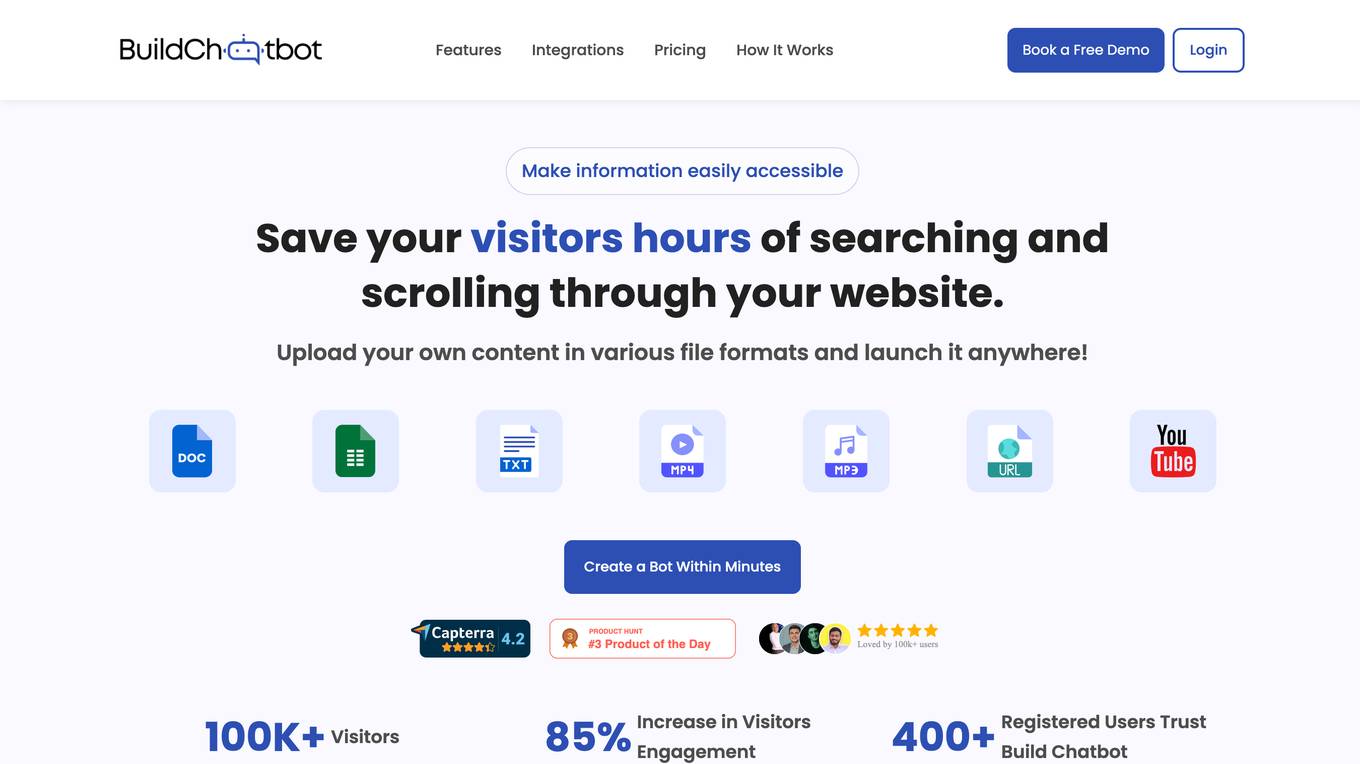
Build Chatbot
Build Chatbot is a no-code chatbot builder designed to simplify the process of creating chatbots. It enables users to build their chatbot without any coding knowledge, auto-train it with personalized content, and get the chatbot ready with an engaging UI. The platform offers various features to enhance user engagement, provide personalized responses, and streamline communication with website visitors. Build Chatbot aims to save time for both businesses and customers by making information easily accessible and transforming visitors into satisfied customers.
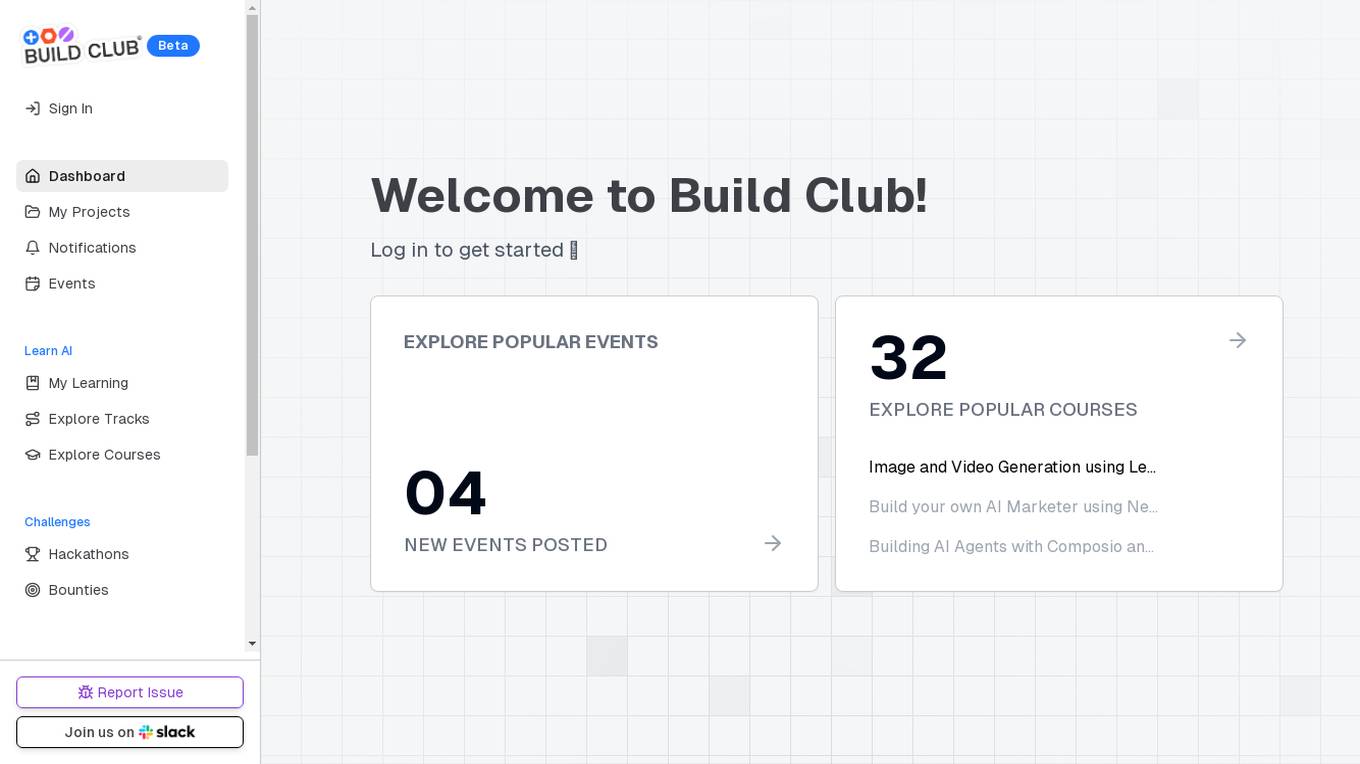
Build Club
Build Club is an AI tool designed to help individuals learn and explore various aspects of artificial intelligence. The platform offers a wide range of courses, challenges, hackathons, and community projects to enhance users' AI skills. Users can build AI models for tasks like image and video generation, AI marketing, and creating AI agents. Build Club aims to create a collaborative learning environment for AI enthusiasts to grow their knowledge and skills in the field of artificial intelligence.
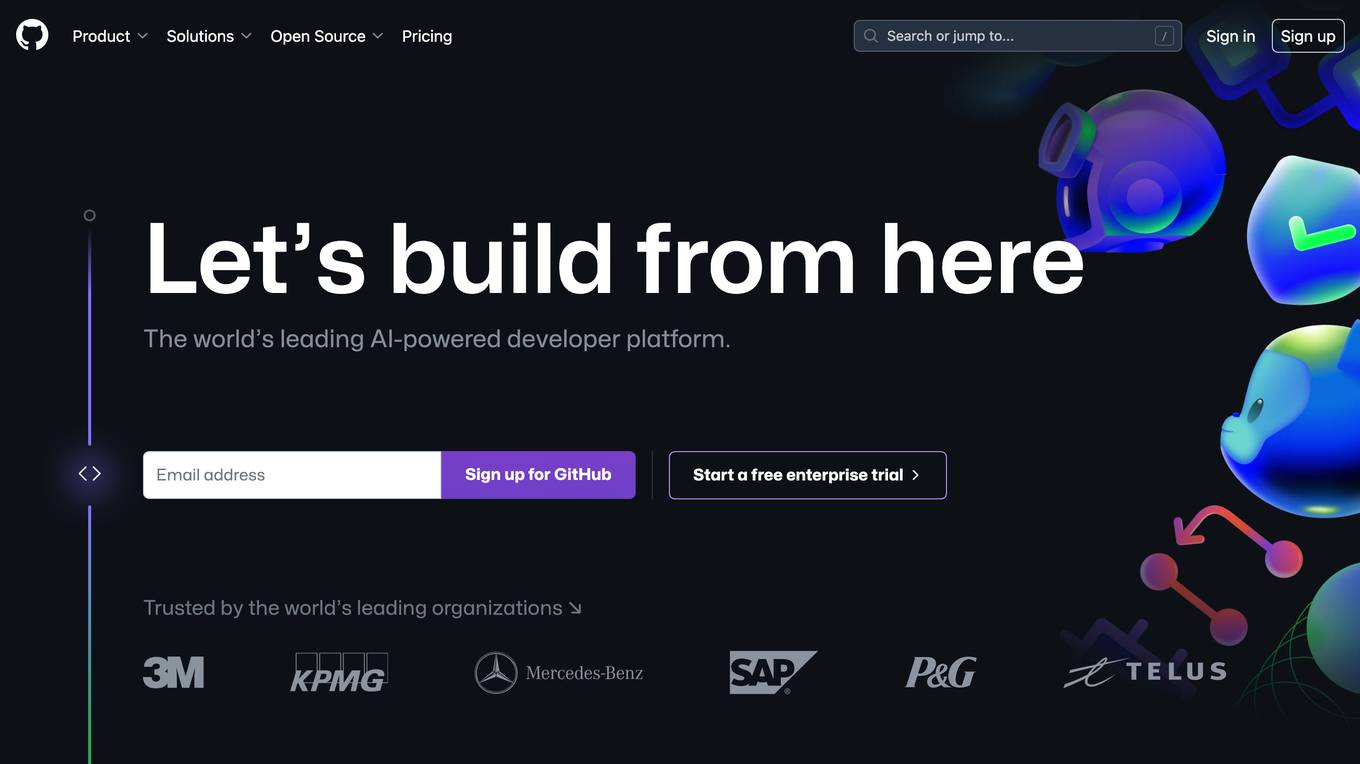
GitHub
GitHub is a collaborative platform that allows users to build and ship software efficiently. GitHub Copilot, an AI-powered tool, helps developers write better code by providing coding assistance, automating workflows, and enhancing security. The platform offers features such as instant dev environments, code review, code search, and collaboration tools. GitHub is widely used by enterprises, small and medium teams, startups, and nonprofits across various industries. It aims to simplify the development process, increase productivity, and improve the overall developer experience.
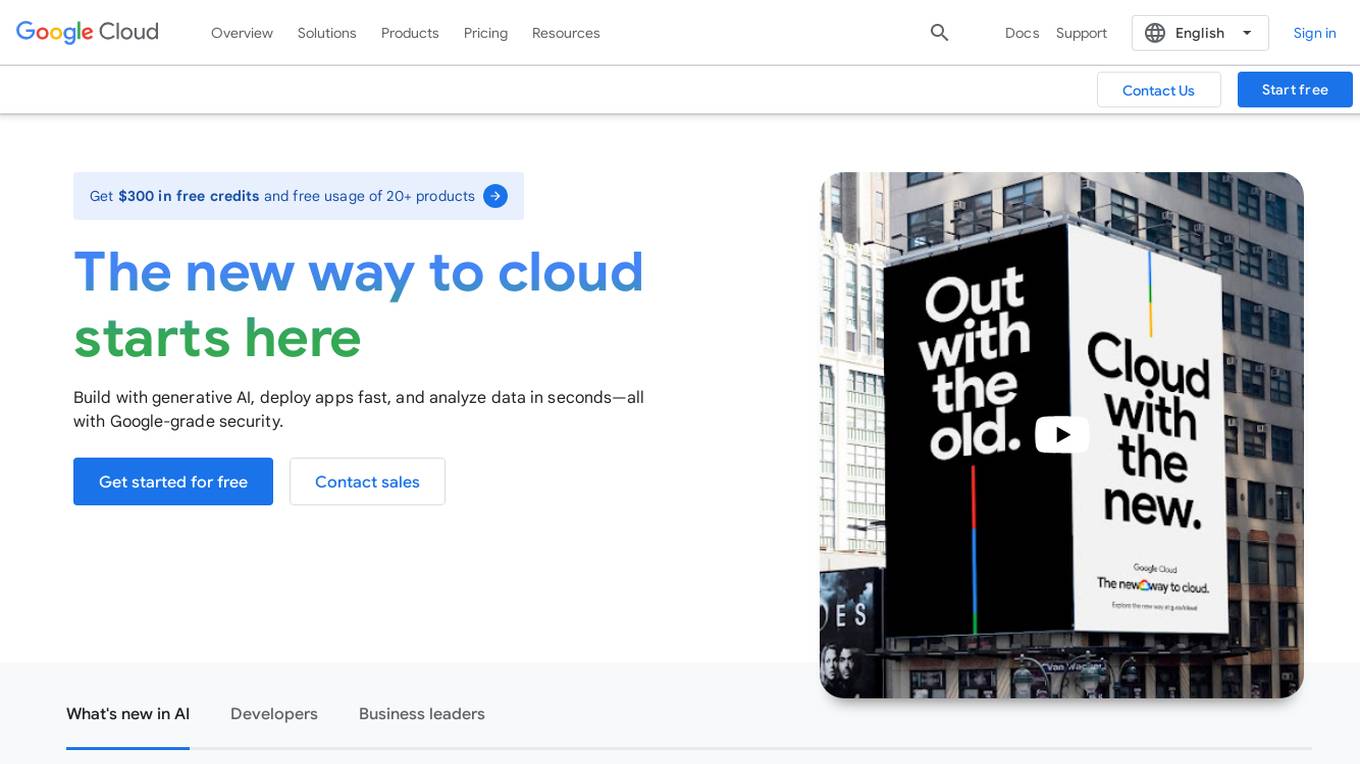
Google Cloud
Google Cloud is a suite of cloud computing services that runs on the same infrastructure as Google. Its services include computing, storage, networking, databases, machine learning, and more. Google Cloud is designed to make it easy for businesses to develop and deploy applications in the cloud. It offers a variety of tools and services to help businesses with everything from building and deploying applications to managing their infrastructure. Google Cloud is also committed to sustainability, and it has a number of programs in place to reduce its environmental impact.
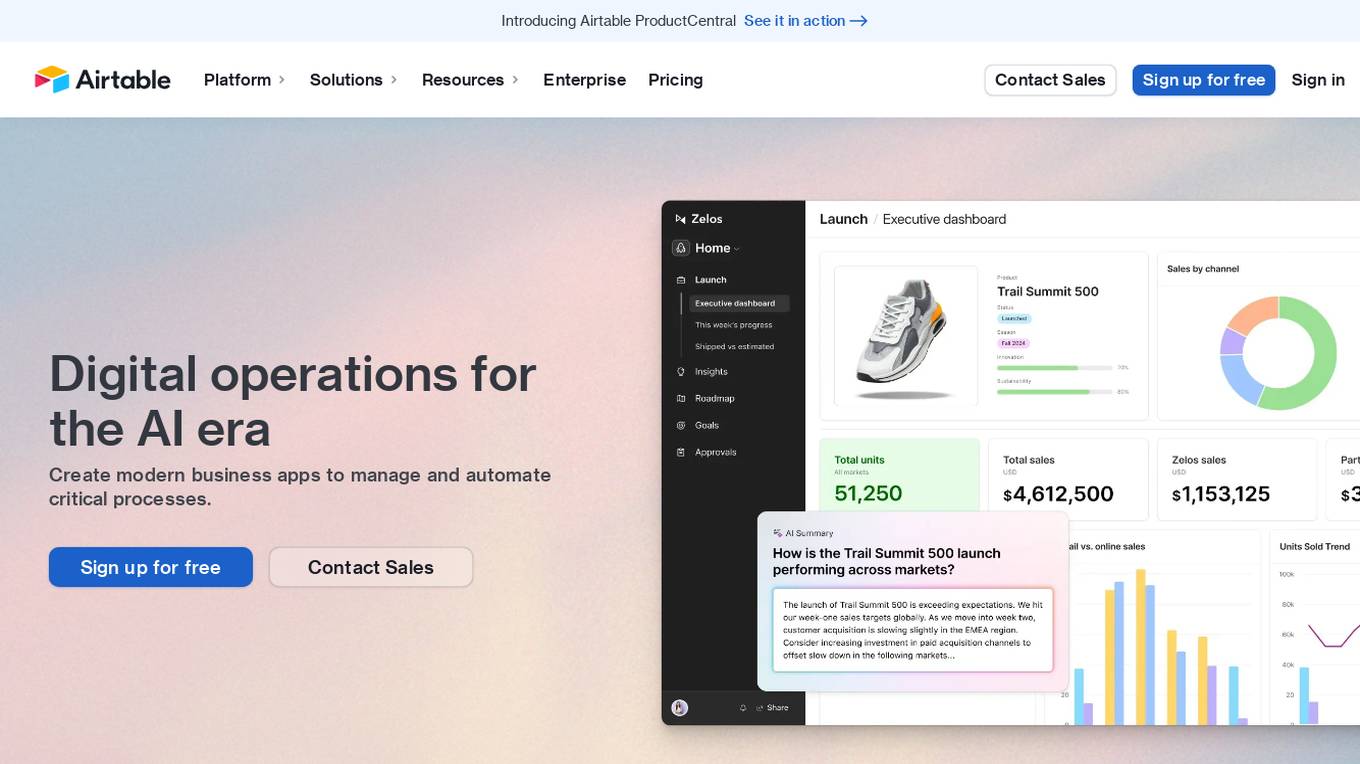
Airtable
Airtable is a next-gen app-building platform that enables teams to create custom business apps without the need for coding. It offers features like AI integration, connected data, automations, interface design, and data visualization. Airtable allows users to manage security, permissions, and data protection at scale. The platform also provides integrations with popular tools like Slack, Google Drive, and Salesforce, along with an extension marketplace for additional templates and apps. Users can streamline workflows, automate processes, and gain insights through reporting and analytics.
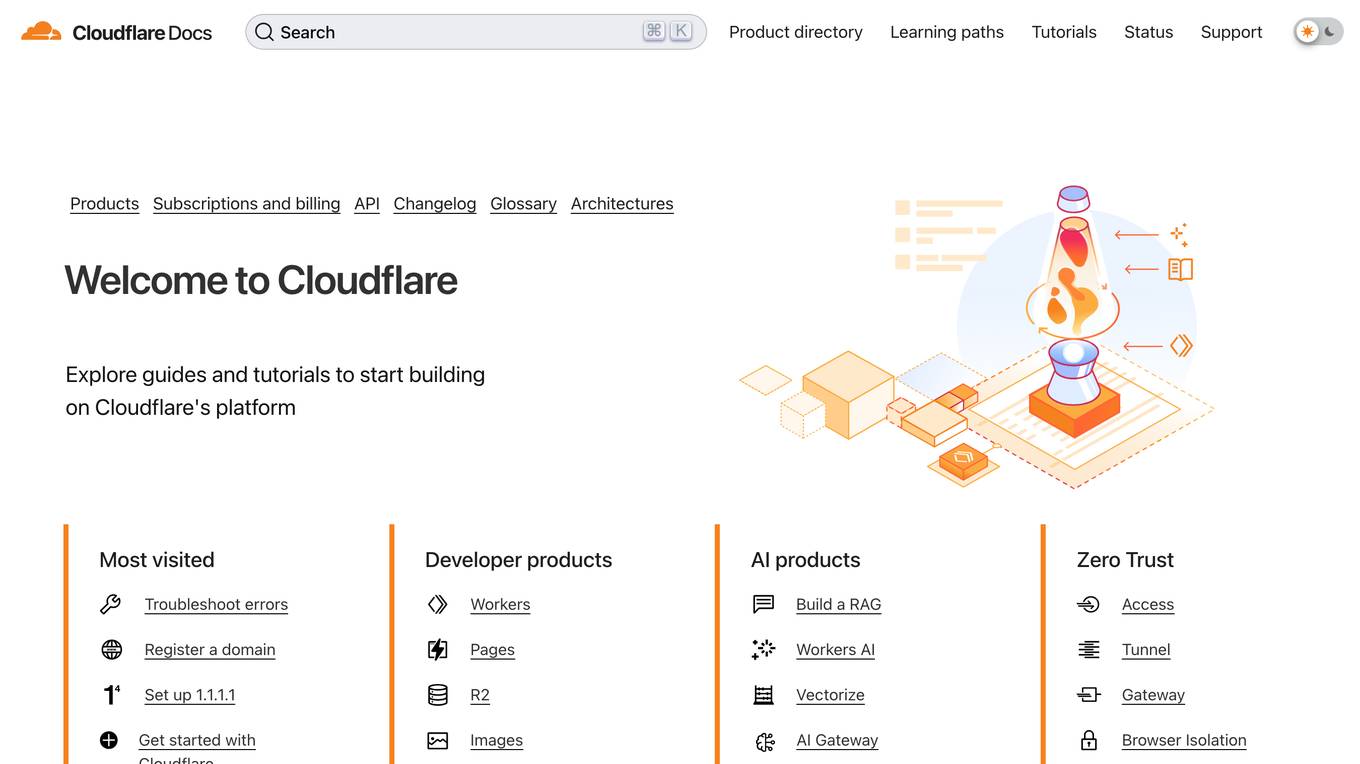
Cloudflare
Cloudflare is a web infrastructure and website security company that provides content delivery network services, DDoS mitigation, Internet security, and distributed domain name server services. It offers a range of developer products and AI products to enhance web performance and security. Cloudflare's platform allows users to build, secure, and deliver applications globally, with features like Workers, Pages, Images, Stream, AutoRAG, AI Vectorize, AI Gateway, and AI Playground.
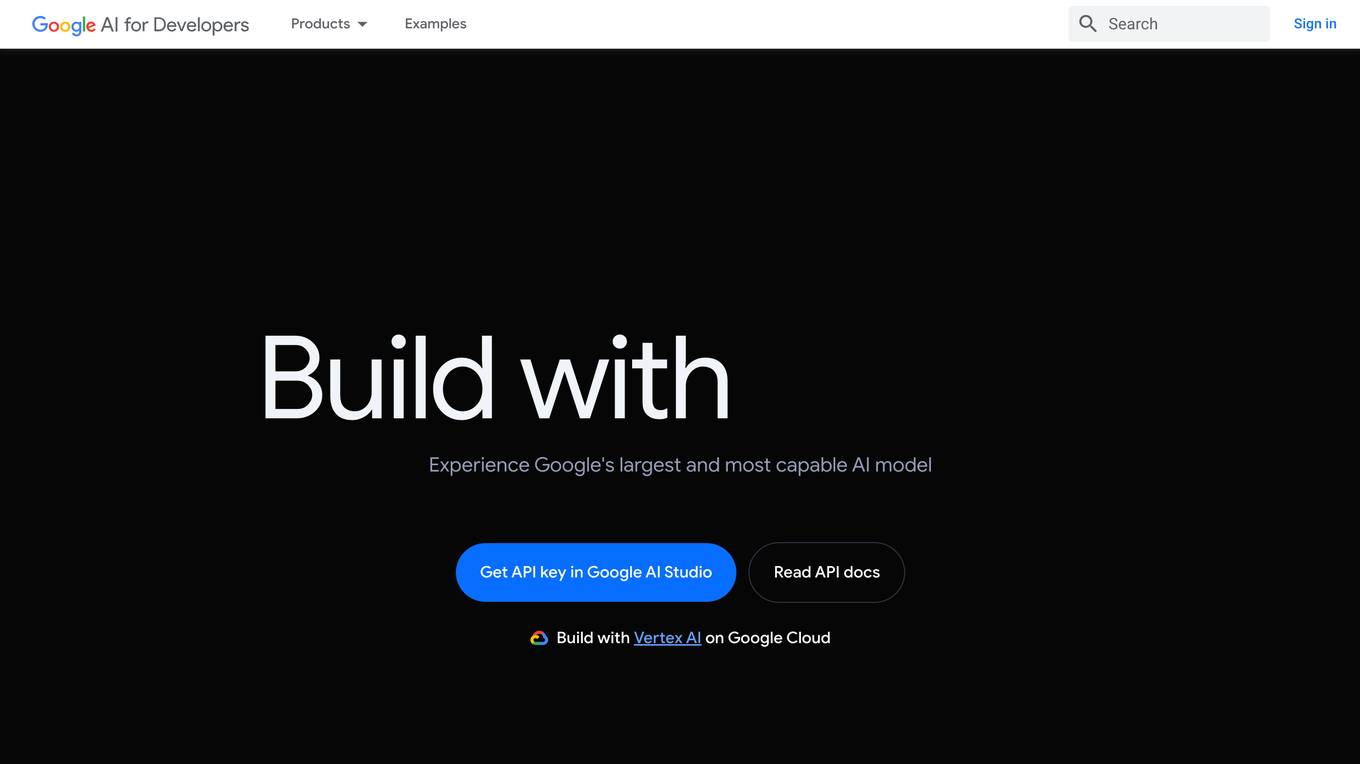
Gemini
Gemini is a large and powerful AI model developed by Google. It is designed to handle a wide variety of text and image reasoning tasks, and it can be used to build a variety of AI-powered applications. Gemini is available in three sizes: Ultra, Pro, and Nano. Ultra is the most capable model, but it is also the most expensive. Pro is the best performing model for a wide variety of tasks, and it is a good value for the price. Nano is the most efficient model, and it is designed for on-device use cases.
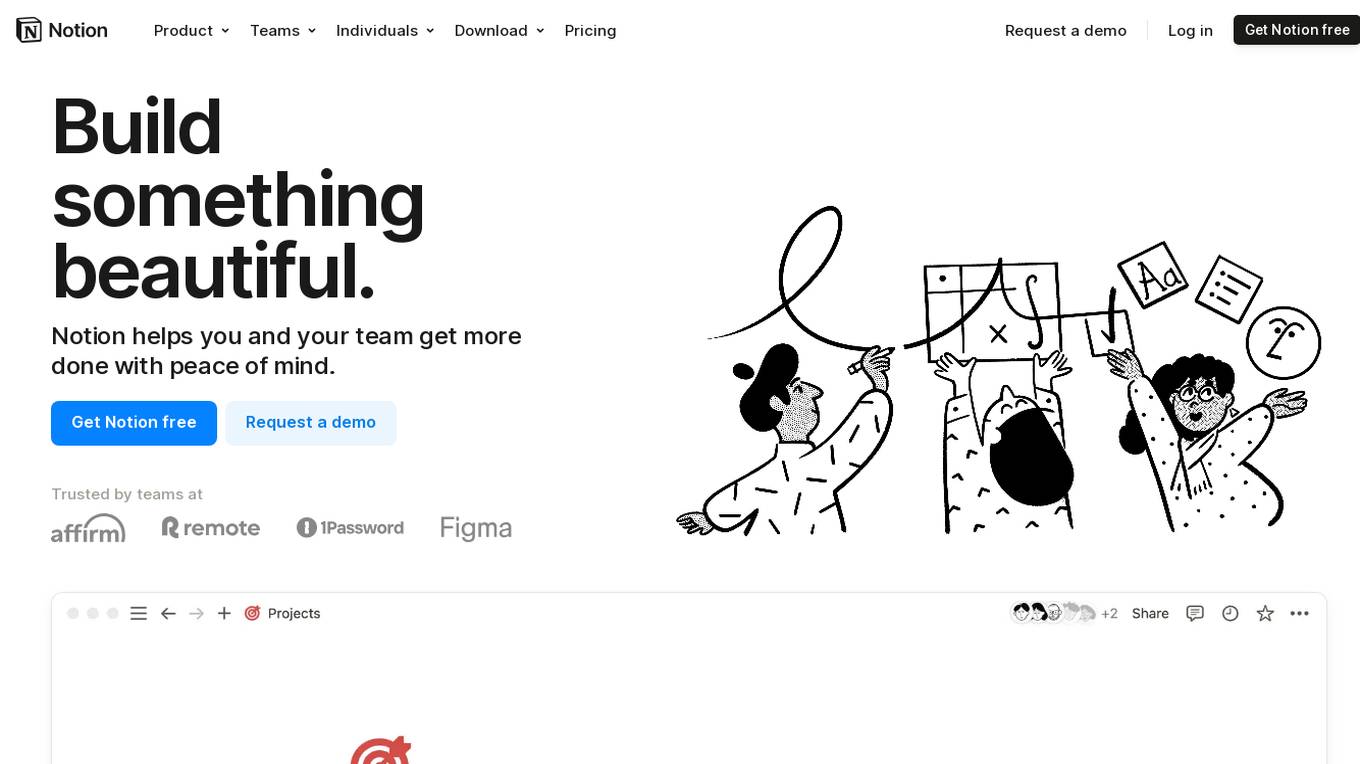
Notion
Notion is an AI-integrated workspace platform that combines wiki, docs, and project management functionalities in one tool. It offers a centralized hub for teams to collaborate, share knowledge, manage projects, and streamline workflows. With AI assistance, users can enhance their productivity by automating tasks, generating content, and finding information quickly. Notion aims to simplify work processes and empower teams to work more efficiently and creatively.
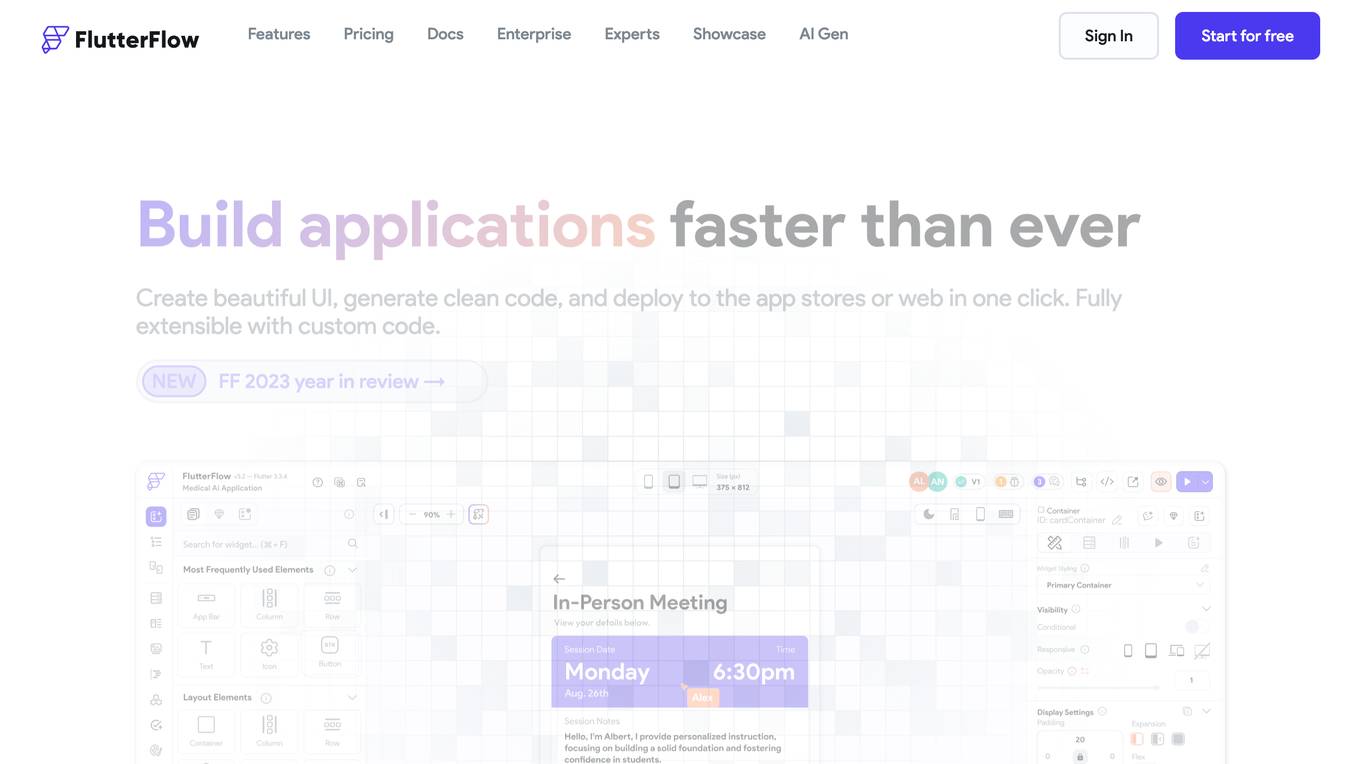
FlutterFlow
FlutterFlow is a low-code development platform that enables users to build cross-platform mobile and web applications without writing code. It provides a visual interface for designing user interfaces, connecting data, and implementing complex logic. FlutterFlow is trusted by users at leading companies around the world and has been used to build a wide range of applications, from simple prototypes to complex enterprise solutions.
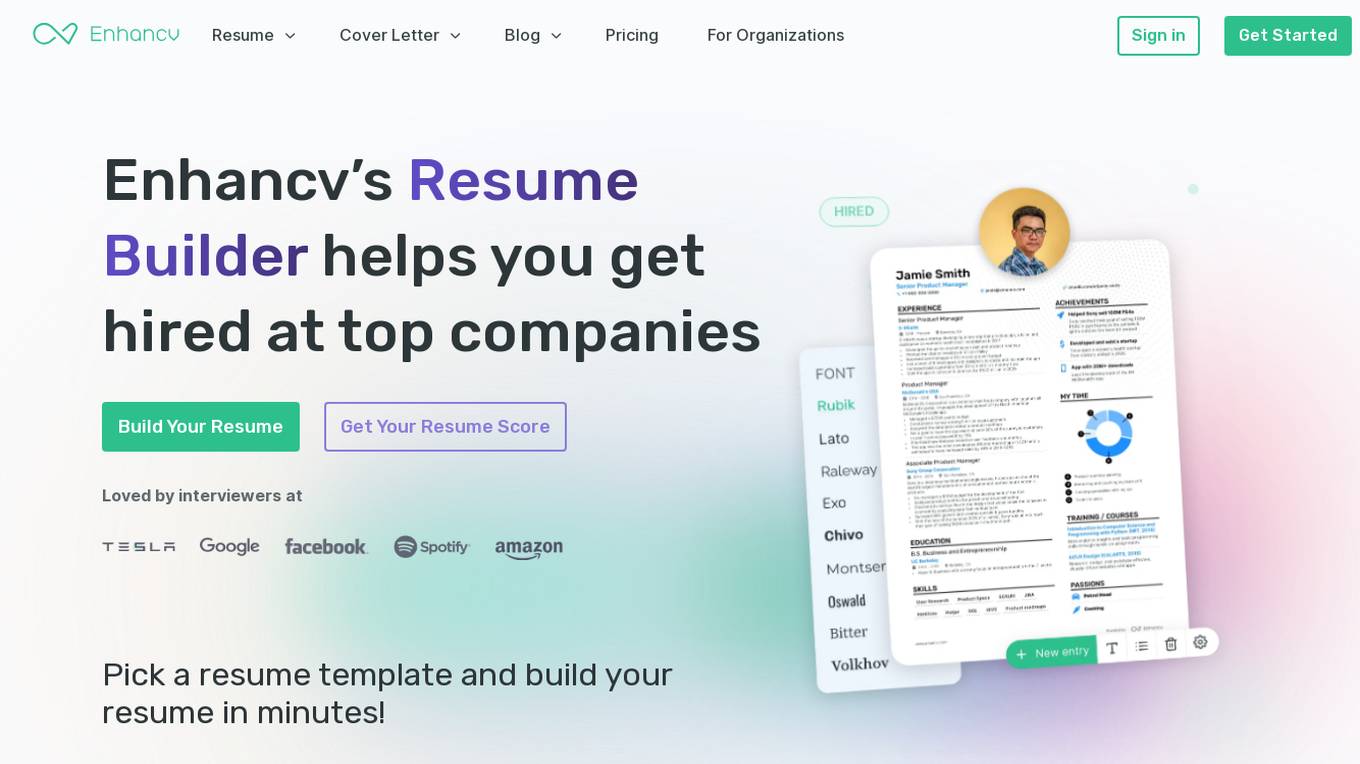
Enhancv
Enhancv is an AI-powered online resume builder that helps users create professional resumes and cover letters tailored to their job applications. The tool offers a drag-and-drop resume builder with a variety of modern templates, a resume checker that evaluates resumes for ATS-friendliness, and provides actionable suggestions. Enhancv also provides resume and CV examples written by experienced professionals, a resume tailoring feature, and a free resume checker. Users can download their resumes in PDF or TXT formats and store up to 30 documents in cloud storage.
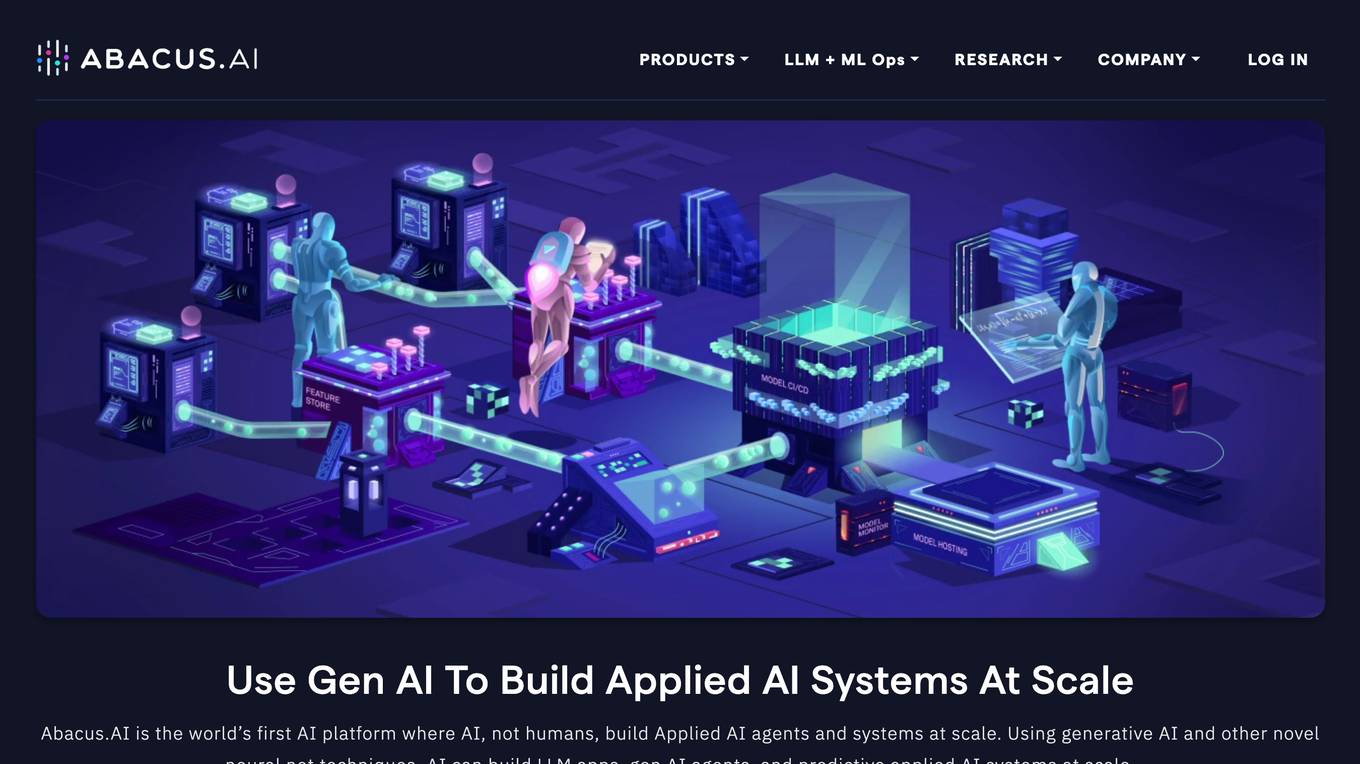
Abacus.AI
Abacus.AI is the world's first AI platform where AI, not humans, build Applied AI agents and systems at scale. Using generative AI and other novel neural net techniques, AI can build LLM apps, gen AI agents, and predictive applied AI systems at scale.
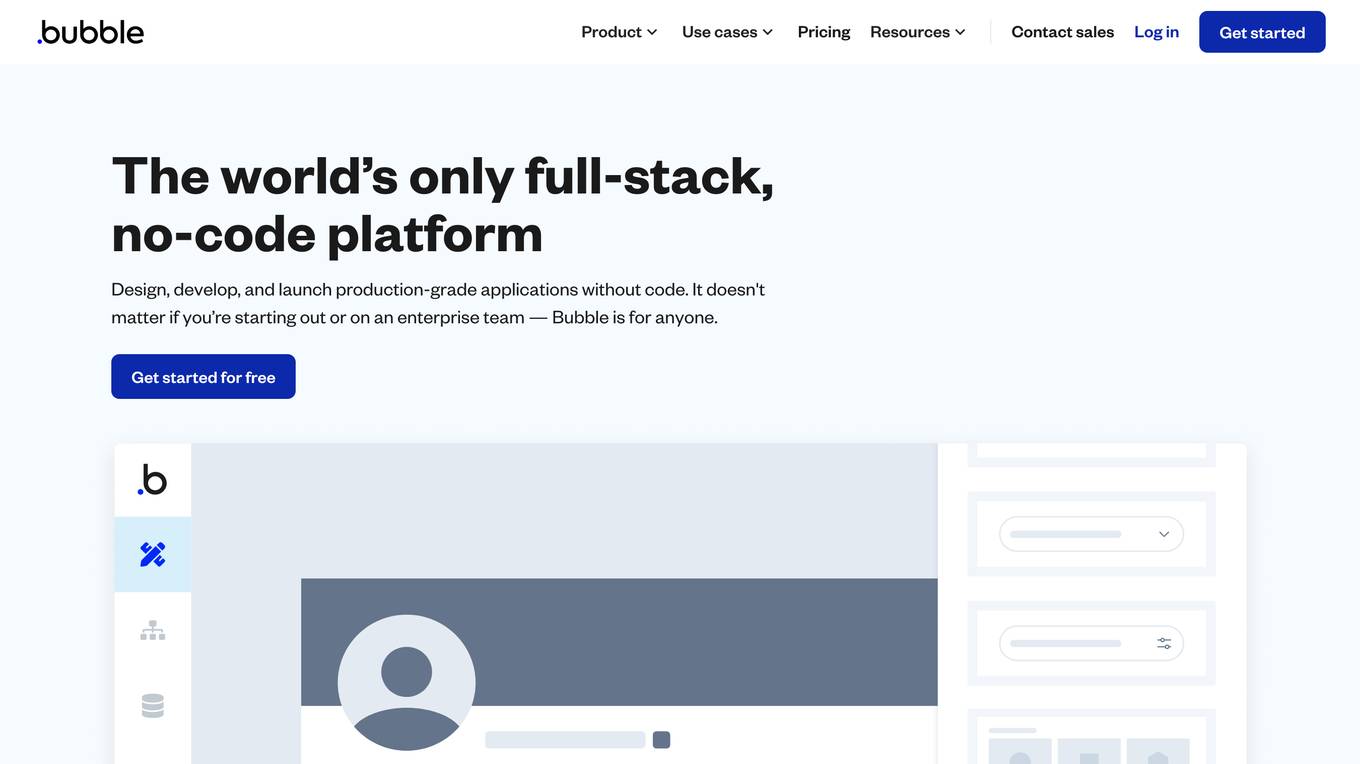
Bubble
Bubble is a no-code application development platform that allows users to build and deploy web and mobile applications without writing any code. It provides a visual interface for designing and developing applications, and it includes a library of pre-built components and templates that can be used to accelerate development. Bubble is suitable for a wide range of users, from beginners with no coding experience to experienced developers who want to build applications quickly and easily.
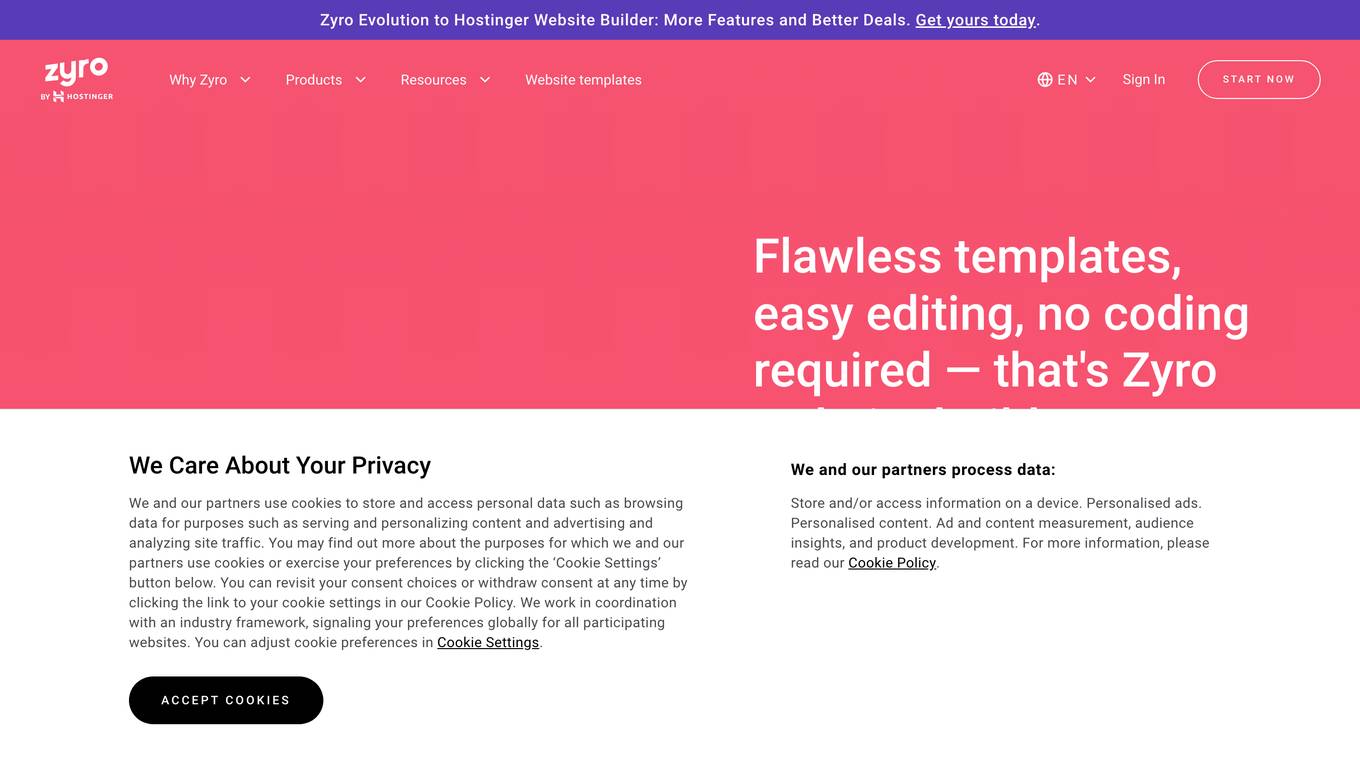
Zyro
Zyro is a website builder that allows users to create professional websites and online stores without any coding knowledge. It offers a range of features, including customizable templates, drag-and-drop editing, and AI-powered tools to help users brand and grow their businesses.
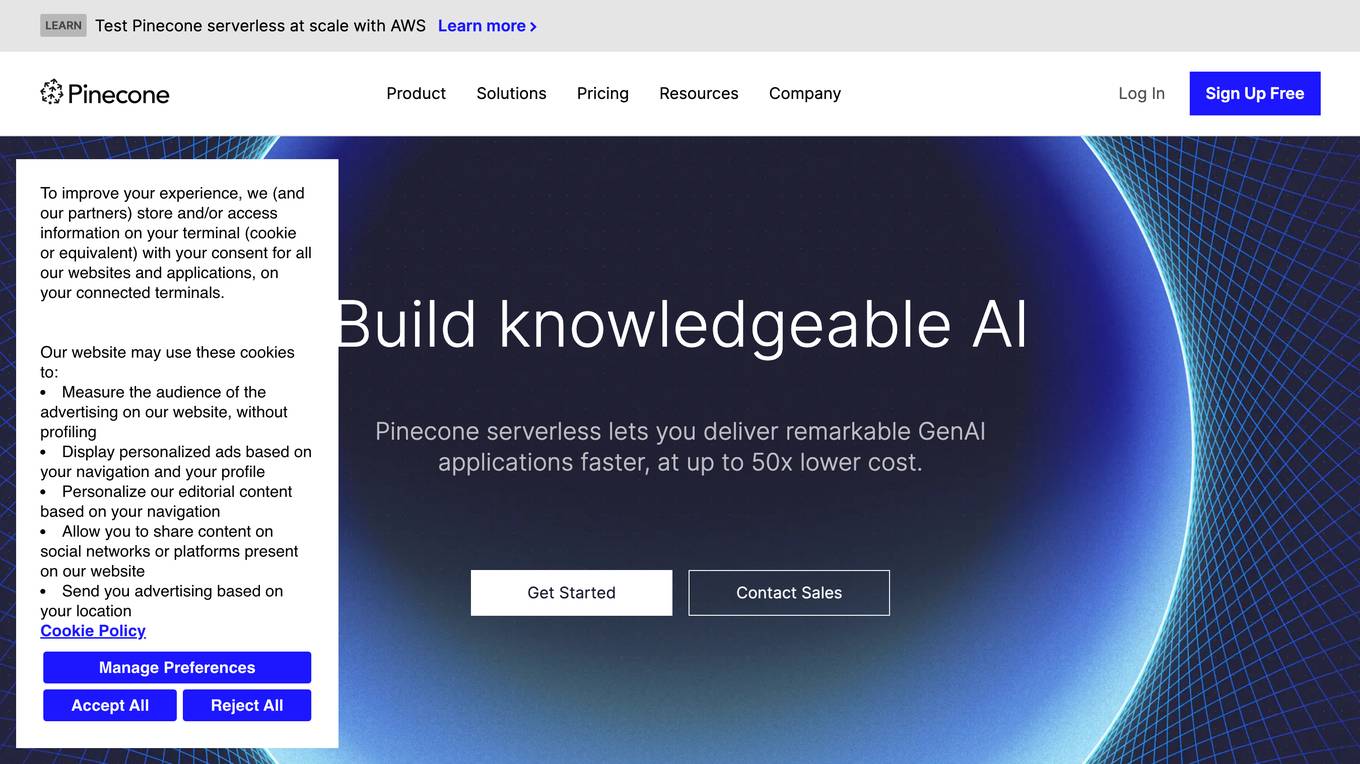
Pinecone
Pinecone is a vector database that helps power AI for the world's best companies. It is a serverless database that lets you deliver remarkable GenAI applications faster, at up to 50x lower cost. Pinecone is easy to use and can be integrated with your favorite cloud provider, data sources, models, frameworks, and more.

Cursor
Cursor is an AI-first code editor that helps developers build software faster. It provides a variety of features to help developers, including code completion, code generation, and error detection. Cursor is also designed to be easy to use and integrates with popular development tools like VSCode.

Durable
Durable is an AI website builder and small business software that helps users create professional websites and manage their business online. With features like AI website building, AI copywriting, SEO optimization, blog content creation, invoicing, and lead management, Durable simplifies the process of establishing an online presence and growing a business. Trusted by millions of businesses, Durable offers an intuitive and user-friendly platform that caters to users with varying technical skills, allowing them to easily launch and manage their websites without the need for extensive coding knowledge.
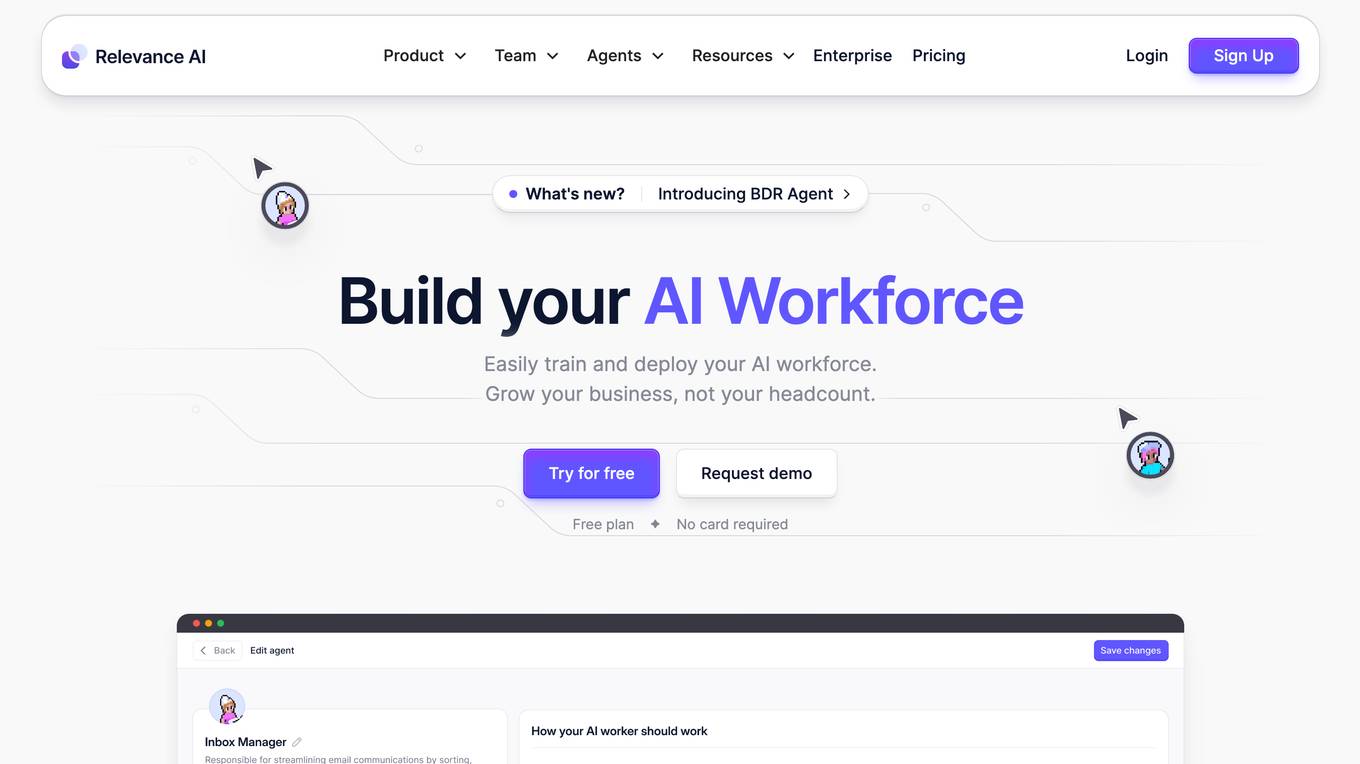
Relevance AI
Relevance AI is a platform that allows users to build and deploy AI applications and agents. The platform provides a no-code builder, pre-built templates, and integrations with other tools and services. Relevance AI can be used for a variety of tasks, including sales, marketing, customer support, research, and operations.
0 - Open Source AI Tools
20 - OpenAI Gpts
Prepper Survival Guide
... A Guide for Prepping and Survival Strategies ... Life is unpredictable, and while we often hope for the best ... prepare for the worst.
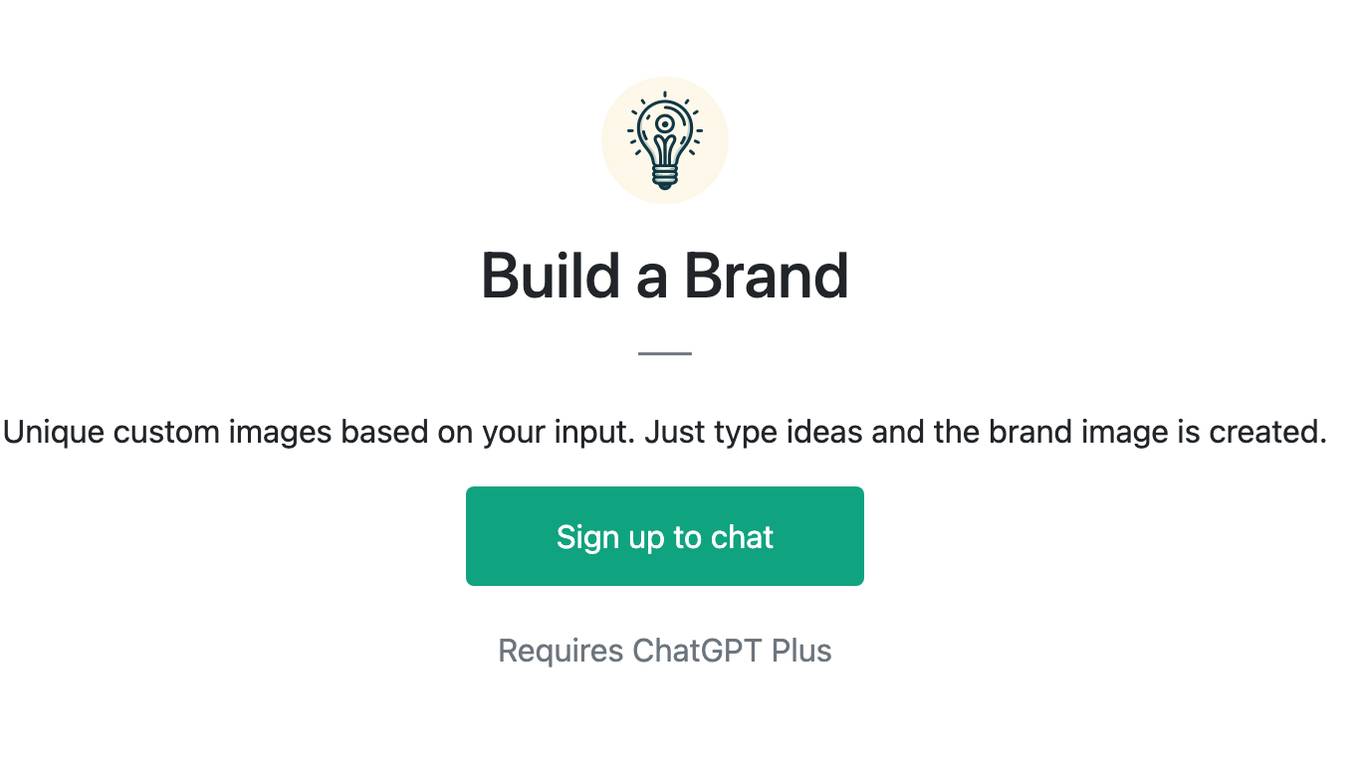
Build a Brand
Unique custom images based on your input. Just type ideas and the brand image is created.
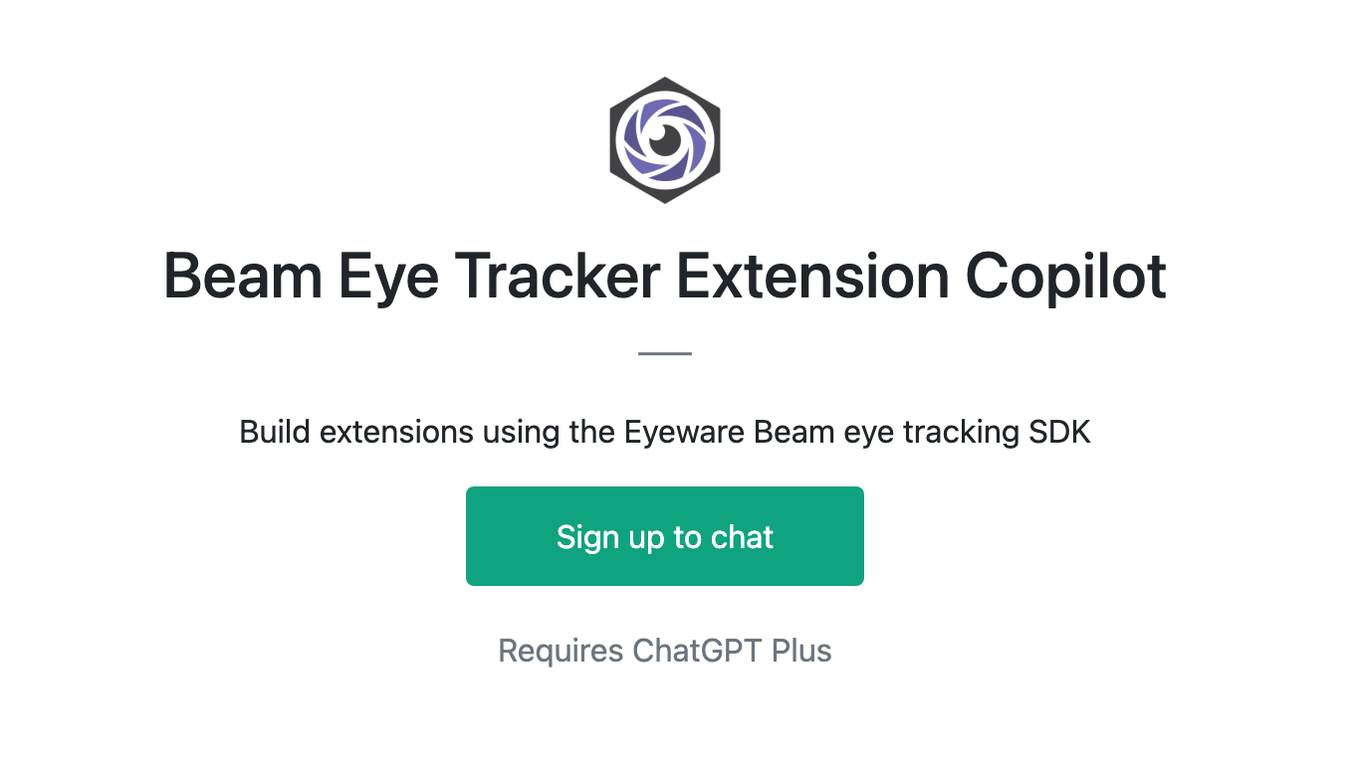
Beam Eye Tracker Extension Copilot
Build extensions using the Eyeware Beam eye tracking SDK

Business Model Canvas Strategist
Business Model Canvas Creator - Build and evaluate your business model

League Champion Builder GPT
Build your own League of Legends Style Champion with Abilities, Back Story and Splash Art
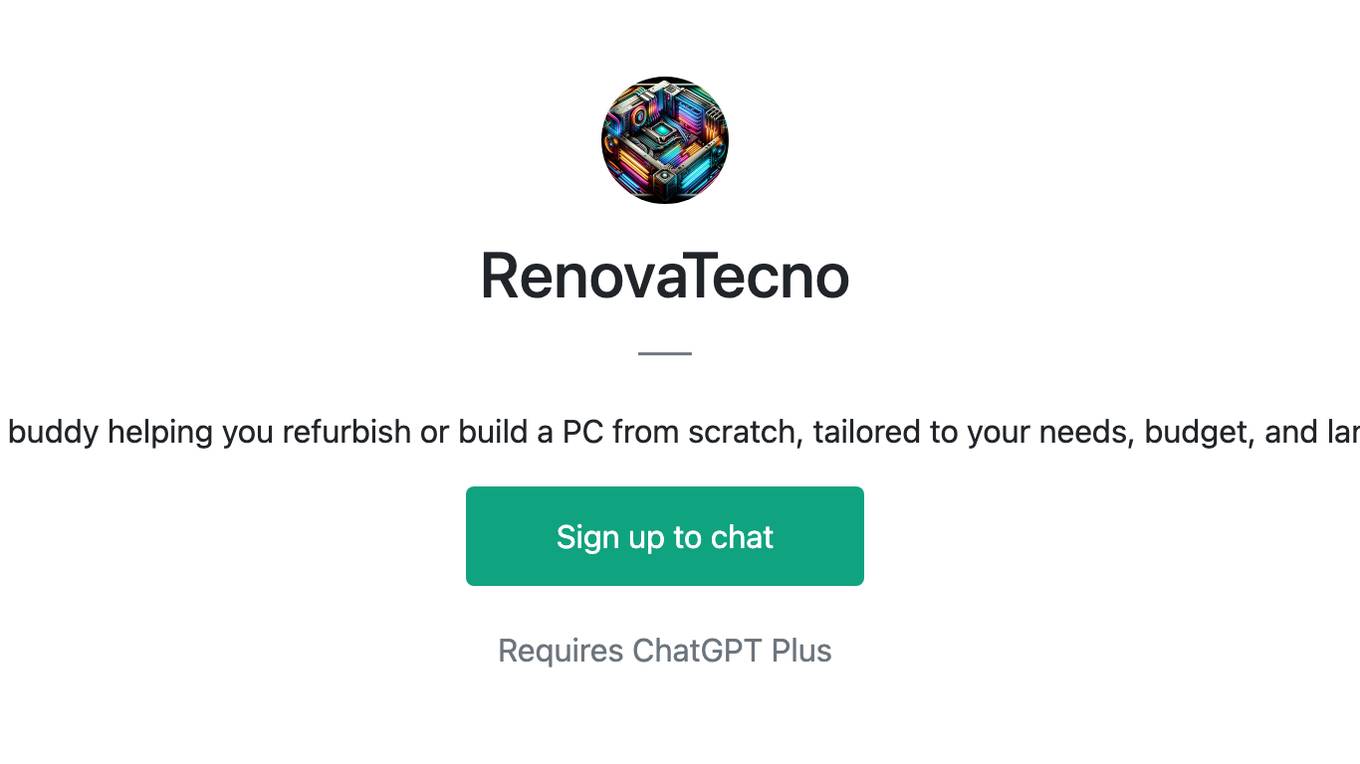
RenovaTecno
Your tech buddy helping you refurbish or build a PC from scratch, tailored to your needs, budget, and language.

Gradle Expert
Your expert in Gradle build configuration, offering clear, practical advice.
